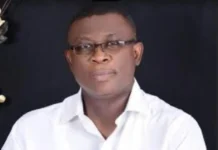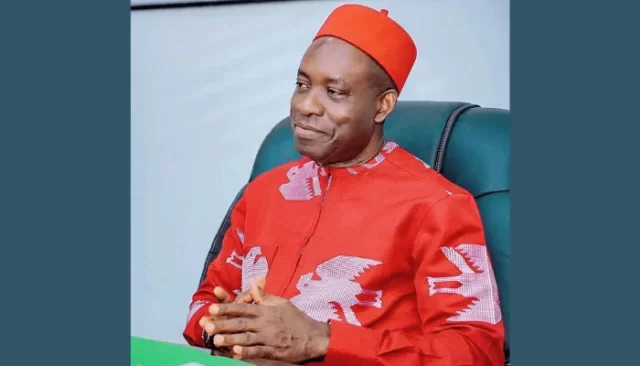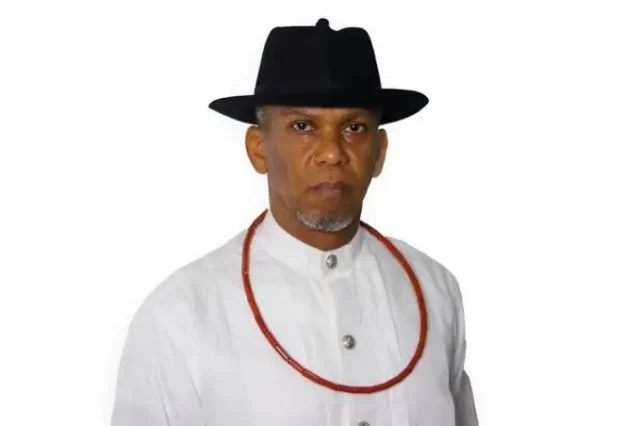By Sunny Awhefeada
Nigeria is in a flux and so are the ethnic nationalities that constitute it. The colonial enterprise cobbled people from disparate entities together and christened them Nigeria as fancied by Flora Shaw, the girlfriend of Baron Fredrick John Dealtry Lugard, the enforcer-in-chief of the colonial agenda. Colonialism ruptured the lives of the colonized in perpetuity. The Urhobo people were among the “tribes” albeit not of “the primitive tribes of the lower Niger” that were tenanted in the Nigerian house built by Lugard in 1914.
Our ancestors were still savoring the never ending sweet memory of their triumph over Benin some centuries earlier when they first heard of the disturbing echoes of colonialism. The punitive expedition which resulted in the bombardment of Benin in 1897 was to confirm to them that a new order was at hand. Despite the tense relations with Benin arising from the forced migration that made Urhobo to secede in the first instance, many formations of Urhobo warriors teamed up with their erstwhile brothers to fight against the Admiral Rawson-led British forces. Urhobo warriors held their ground displaying rare tenacity, unmatched bravado and martial stratagem in protecting Benin for a while until they were overwhelmed by cannon fire the symbol of colonial might at the time. Routed but proud, the returnee warriors recounted their experience of “ivwirin aka” in picturesque memorialization of the thick smoke emitted by the cannons deployed by the British forces.
1897, the year of Benin capitulation to British superior firepower was the year of birth of Chief Jabin Asiditor Obahor around whom today’s intervention is framed. An Urhobo from Evwreni, Chief Obahor was one of the many unsung Nigerian nationalists from minority ethnic groups whose contribution to the making of Nigeria remain undervalued and untold. The significant contributions the likes of Mukoro Mowoe, Adogbeji Salubi, Denis Osadebay, Samuel Mariere, Arthur Prest, Harold Dappa Biriye, Edgbert Udo Udoma, Eyo Ita, Margaret Ekpo, Humphrey Omo-Osagie and James Otobo to the nationalist movement and the making of modern Nigeria continue to suffer erasure from mainstream history or at best confined to footnotes. But for them, the known and celebrated nationalists who get garlanded would not have achieved what is now attributed to them. The contours and contents of Nigerian historiography are decked only by the deeds of Nnamdi Azikiwe, Obafemi Awolowo, Ahmadu Bello, Abubakar Tafawa-Balewa and others who happen to be Nigerians of Hausa/Fulani, Igbo or Yoruba extraction. Ironically, the forgotten heroes from the minority regions had more faith in Nigeria and could never have imagined the country as “a mere geographical expression” as did Awolowo. Despite their avowed faith in Nigeria and contributions to the making of the country, they remain unaccounted for when the story of Nigeria is told.
I came to know Vwede Jeff Obahor around 2020 just after the COVID-19. Our many encounters between then and now had been online. Our engagements, mostly meetings or seminars or workshops revolve around what has become a mega theme in our consciousness which is “ejowha r’ Urhobo” translated to mean “Urhobo nationalism”. He spoke frankly on each occasion and his perspectives were refreshing, lucid and point to an unalloyed Urhobo patriotism. From the word go and without asking I knew he was a progeny of Chief Obahor when he introduced himself as hailing from Evwreni. Vwede called me on phone a few days ago and for the first time we, just two of us, had an enlightening and reassuring conversation. Since it was our first private one on one conversation we had to do introductions again and he confirmed that he was a grandson of the avatar, Jabin Obahor.
I grew up in Evwreni and the story of Chief Obahor staple for our edification. As children we visited Obahor’s Evwreni residence regularly as some of our friends lived there. We also passed through the tall and impressive building everyday as we walked to and from school. When Chief Obahor died in 1982 I was among the primary school pupils who lined both sides of the road to wave his mortal remains farewell. I told Vwede all of this. Our conversation thus began. Of course the subject matter was the fate of the Urhobo nation and what has befallen it in recent times. We bemoaned the present state of ennui and loss of direction among the elite. Right now everything seems to be wrong and the future appears bleak unless something was done by way of an intervention. Socio-economic life is fast collapsing, poverty is sprawling, insecurity looms, the elders appear helpless, the youths are groping and what is more the Urhobo Progress Union (UPU) which Vwede’s grandfather and others founded more than ninety years ago is “turning and turning in the widening gyre”. The recent UPU epistles about TANTITA further calls to question the altruism of its leaders. Urhobo unity is threatened. What has become the lot of the Urhobo in the Nigerian house is acute marginalization. Vwede and I agreed that the Urhobo urgently need a rebirth.
The Urhobo of today is in sharp contrast with the Urhobo of yore. Vwede’s grandfather was the third President-General of the UPU from 1957 to 1961. He was in the vanguard of those who envisioned a new dawn for the Urhobo people. As a leading merchant of his days he numbered as one of the financiers of Azikiwe’s National Council of Nigeria and the Cameroons (NCNC), Nigeria’s first truly national party. He got elected as a representative of Eastern Urhobo on the platform of the NCNC. Chief Obahor was in the official delegation that received the Queen of England when she visited Nigeria in 1956. An incorruptible character, Chief Obahor served as a member of the Nigerian Currency Board with the likes of Chief T. A. Odutola and Dr. Clement Isong. He was Nigeria’s first Director of Domestic Operations at the Central Bank and the first Nigerian to sign the nation’s currency. That was a feat that earned him the cognomen “Currency” beside his Urhobo appellation of “Abadi”.
Chief Obahor teamed up with others in the struggle for the actualization of the Midwest Region which was eventually created in 1963 and has been the only region/state created in a democratic setting in Nigeria. Chief Obahor worked with Chiefs Samuel Mariere, Adogbeji Salubi, Daniel Okumagba, Demas Akpore and other Urhobo titans in the NCNC, but they were to fall apart as they took different routes to realize the aspirations of their people. Sensing that the Urhobo would be shortchanged by Okotie-Eboh, the younger elements led by Salubi, Okumagba and Akpore broke away from the NCNC and formed the Midwest Democratic Front (MDF). The outcome was a win-win for the Urhobo people. When Okotie-Eboh tried to disrupt the activities of the MDF in Warri Chief Salubi brought warriors from his hometown of Ovu and the powerful minister of finance returned to Lagos from Benin where he was waiting for word to disrupt the rally. That was the Urhobo of the days of Obahor when Urhobo leaders showed courage.
Vwede’s call made my day. He is a chip off the old block and his views on Urhobo sounded convincing. Although living in Canada, he is in tune with events in Urhoboland. A poet and cofounder of the Actors Guild of Nigeria, Vwede played a leading role in the oil and gas sector in Sierra-Leone and he is now a security and management consultant. This grandson embodies the vision of his grandfather. He is a strong advocate of Urhobo culture in Canada. This is a wakeup call for all Urhobo people to rally round the call of “Urhobo ovuovo” as we struggle to find a place in the Nigerian house. Urhobo mini wadooo…..!!!






















